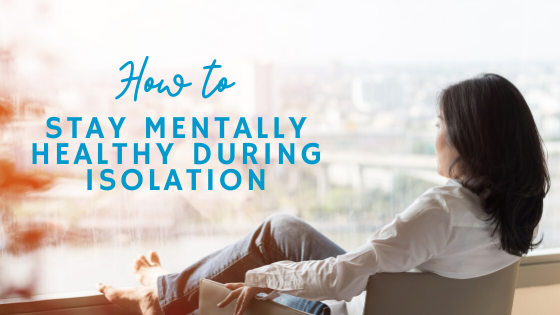As local councils, the State and Federal Governments’ and health authorities look to curb the spread of COVID-19, more and more people throughout NSW are being required to stay home and practice social distancing. Likewise, those who are sick or have tested positive for COVID-19 are further limiting their social contact through mandatory quarantine.
There is no denying the COVID-19 coronavirus is impacting us and our members, and today’s discussion questions how COVID-19 is affecting our happiness and ability to manage our mental wellbeing? Especially when we are physically cut off from friends, family and other social interactions.
While such measures may protect our physical health, SCA (NSW) want to emphasise the importance of considering the impact of isolation on your mental health.
Being separated from friends, family, and colleagues may trigger feelings of loneliness, anxiety, anger, restlessness, stress, and even depression. But just as we are protecting our immune system, it is equally important to prioritise self-care during the lockdown period.
We want to take a moment to provide some information and resources for you to assist in taking care of your mental health while in social isolation.
We see this as an opportunity to invest in some self-care.
Whether you live alone, with a partner, or with family/friends, there are many ways to care for mental health during isolation.
- Keep busy— Have a household project you have been putting off or been too busy to get around to? Now’s your chance! Organise your closet or put together that bookshelf that is been sitting in the corner. You might even consider learning a new language or trying a new indoor hobby.
- Go on a digital detox— While it’s important to stay up to date on the latest public health announcements, too much news consumption can increase feelings of stress and anxiety. If endless scrolling leaves you feeling overwhelmed, try setting aside regular time in the morning or afternoon to check your newsfeed and give yourself a time limit. Many social media platforms even allow you to set such parameters with their apps.
- Pick up a book— Although watching TV can be an easy way to pass the time, reading or listening to audiobooks can stimulate your imagination and give your anxious brain a nice reprieve from reality. Research shows that reading for just six minutes can lower your blood pressure and ease tension in the muscles.
- Communicate with others as much as possible— While physical contact may be limited right now, there are several ways to stay in touch with friends and family. Try to still connect with your friends and family through video chat or phone calls. You don’t need to talk about the quarantine or COVID-19, and in fact, it might be a good idea to keep that part of the conversation to 5-10 minutes and the rest of the time talk about other things.
- Make a schedule— Studies show that following a routine can increase productivity, boost happiness levels, and help ward off depression. Even though you may not be heading into the office right now, it is important to still follow a regular schedule. Having set wake up and shower times, as well as a normal meal schedule, can keep you feeling accomplished and energised while in isolation.
- Practice good hygiene— If you are feeling well enough, continue your regular self-care. By that, we mean, keep showering and getting dressed in real clothes. While lounging in pyjamas with messy hair is fine at first, it is going to start feeling depressing.
- Stay Active— Just because you have been told to stay home doesn’t mean you need to stop exercising. Exercise can help reduce elevated cortisol or stress levels, as well as trigger the release of endorphins, boosting your overall happiness. Even walking up a few flights of stairs or working out in your apartment can be helpful. Move your body!
- Practice mindfulness— It is important to remember that quarantine is not a punishment but actually a form of altruism. Focus on the fact that you are doing the right thing by staying home and preventing further spread of the virus and that those around you are grateful for what you are doing, even if they don’t say so in so many words.
- Get some Vitamin D— If you can, get outside and soak up some sun. Vitamin D plays a vital part in regulating your mood, as well as strengthening the immune system. Consider sitting out on your porch, balcony, or backyard. If you don’t have a private outdoor space, even sitting by a sunny window can help.
- Eat well— It is easy to neglect your nutrition when you are stuck indoors or not feeling well. When it comes to managing your anxiety, however, a balanced diet is vital for your health. As we usually recommend, focus on eating fresh, unprocessed, whole foods in order to maintain a strong immune system.
Struggling?
It is important to seek support if you are feeling overwhelmed. Speaking with friends or family to let them know how you feel can help, and they might also appreciate talking to you about how they feel. There are also many digital mental health services that you can access online or over the phone, or you can connect with a health professional such as your GP, a psychologist, or other mental health professional.
Resources:
Head to Health is committed to providing Australians with trusted information and digital supports to help support everyone’s mental health and wellbeing during this pandemic.
Useful other resources for additional support during this time:



